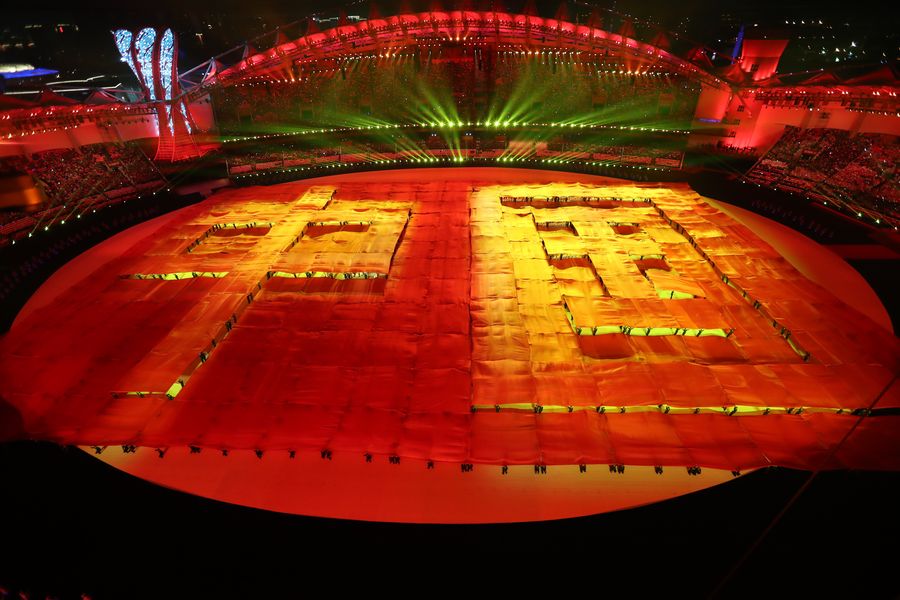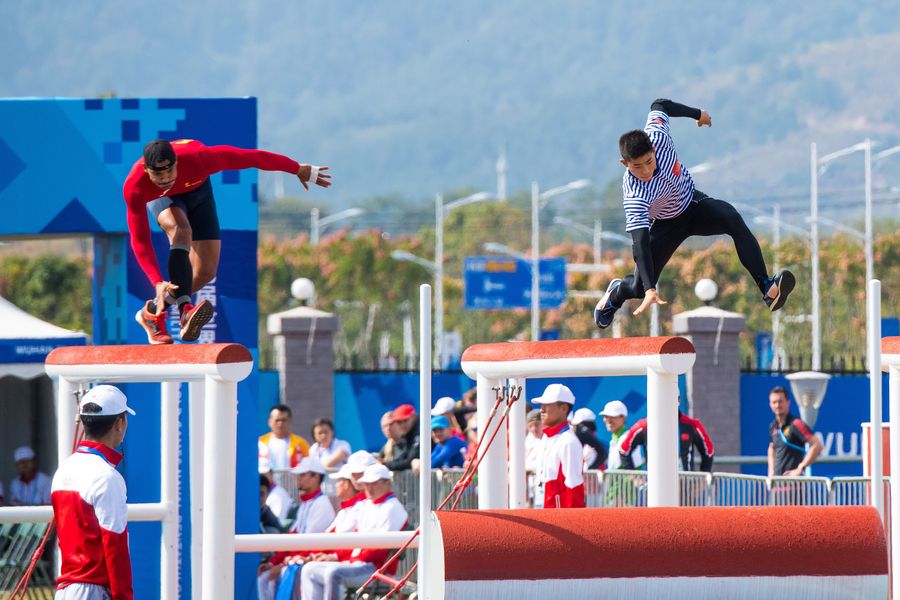Wuhan Military World Games set to leave a rich legacy
With the 7th Military World Games about to close, the "Olympics for military" is set to leave the host city and the world rich legacies.
From world-class sporting facilities and improved infrastructure to a message of peace carried beyond matches and a new culture of volunteering, the legacy created by the 2019 Military World Games is evident as the top international multi-sports event for soldiers draws to a close in a day.
The 7th Military World Games will mark the history of military competitions and develop new practices in the future, said Herve Piccirillo, president of the International Military Sports Council (CISM) in an interview with Xinhua, lauding its material and spiritual legacies to the host city Wuhan and the world.
A view of the opening ceremony of the 7th International Military Sports Council (CISM) Military World Games in Wuhan, capital of central China's Hubei province. [Photo/Xinhua]
Much like the Olympics, the Military World Games have brought together military athletes from around the world every four years since the Games' inauguration in Rome in 1995 to celebrate the end of World War II. 2019 is the first time that China has hosted the Games.
The 2019 Games kicked off in the central Chinese city of Wuhan on Oct. 18 with a grand ceremony attended by President Xi Jinping, who said in a meeting with foreign military officers the same day that he hoped the power of sports would dispel the shadow of war and foster communications between different cultures.
Big sports events
"It feels like the Olympic Games, and the guys who have been to Olympics also said this," said Latvian athlete Laura Vike.
The 2019 Military World Games have the largest numbers of athletes and sports in history. Nearly 10,000 soldiers from 109 nations are competing for 329 gold medals in events from football, swimming, and basketball to parachuting, aeronautical and naval pentathlon.
Cheng Fengxuan (R) of China and Laureiro Luis Enrique Manrique of Spain compete during the men's individual obstacle race of naval pentathlon at the 7th CISM Military World Games in Wuhan, capital of central China's Hubei province, Oct. 23, 2019. [Photo/Xinhua]
The size of the host city, as well as its diversified terrain and abundant water resources, made it possible for all the competitions to be held within one city, where 35 sports venues were built or renovated to meet international standards. A 30-building village was built to accommodate the athletes and coaches.
The Games are open to the public, instead of being limited to barracks. More than 600,000 tickets had been sold, according to the Games executive committee, with men's basketball, women's volleyball, swimming and diving having the highest demand.
Frankline Tonui (up, R) of the United States competes in the men's 3,000m steeplechase preliminary round at the 7th CISM Military World Games in Wuhan, capital of central China's Hubei province, Oct. 22, 2019. [Photo/Xinhua]
Eighty-two records of CISM affiliated events have been rewritten in the 2019 Games by the eighth day, said Piccirillo, largely thanks to the infrastructure, the mobilization of volunteers and the passion of the Chinese people that also set new records.
He said what has been done for the Wuhan Games will serve as an inspiration for future games.




